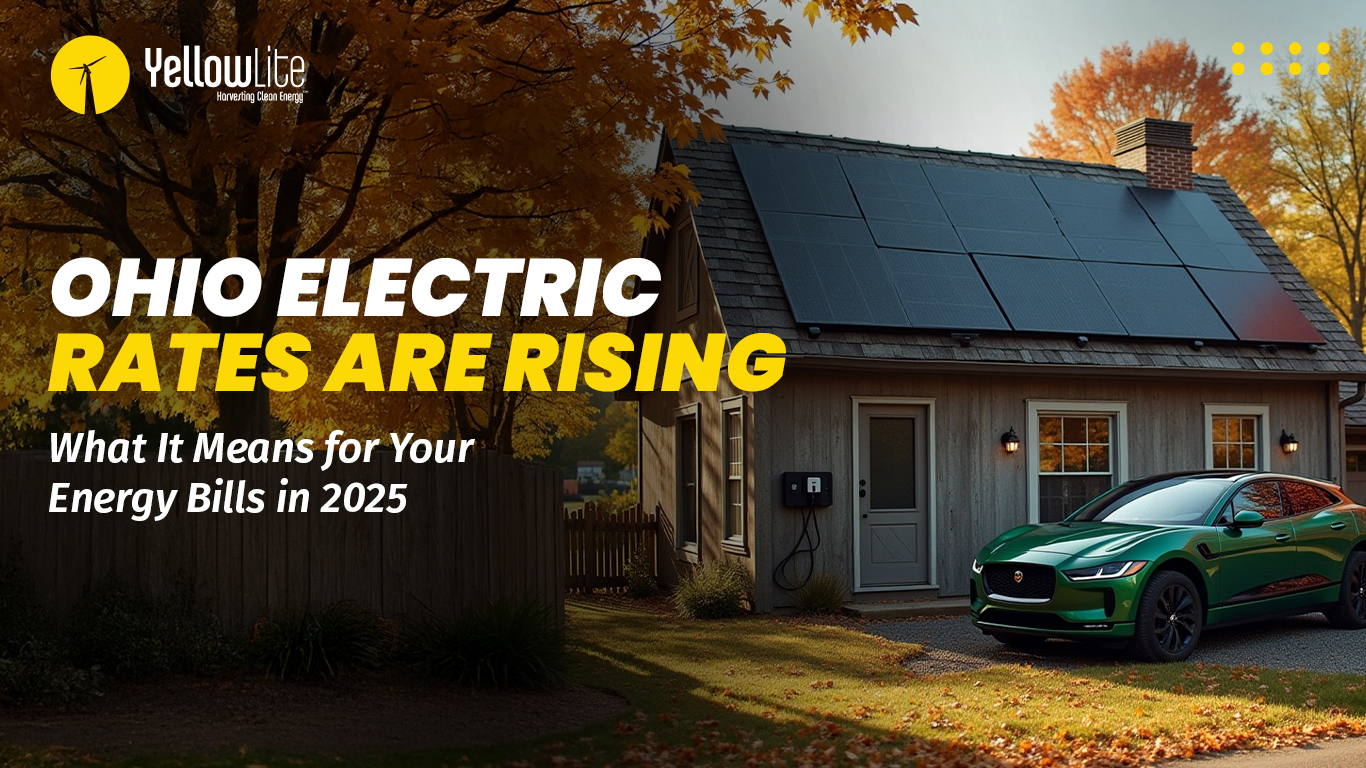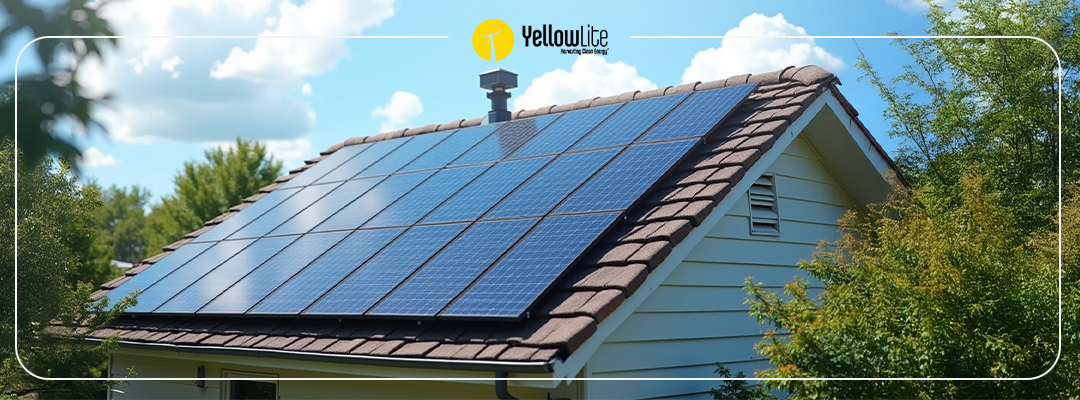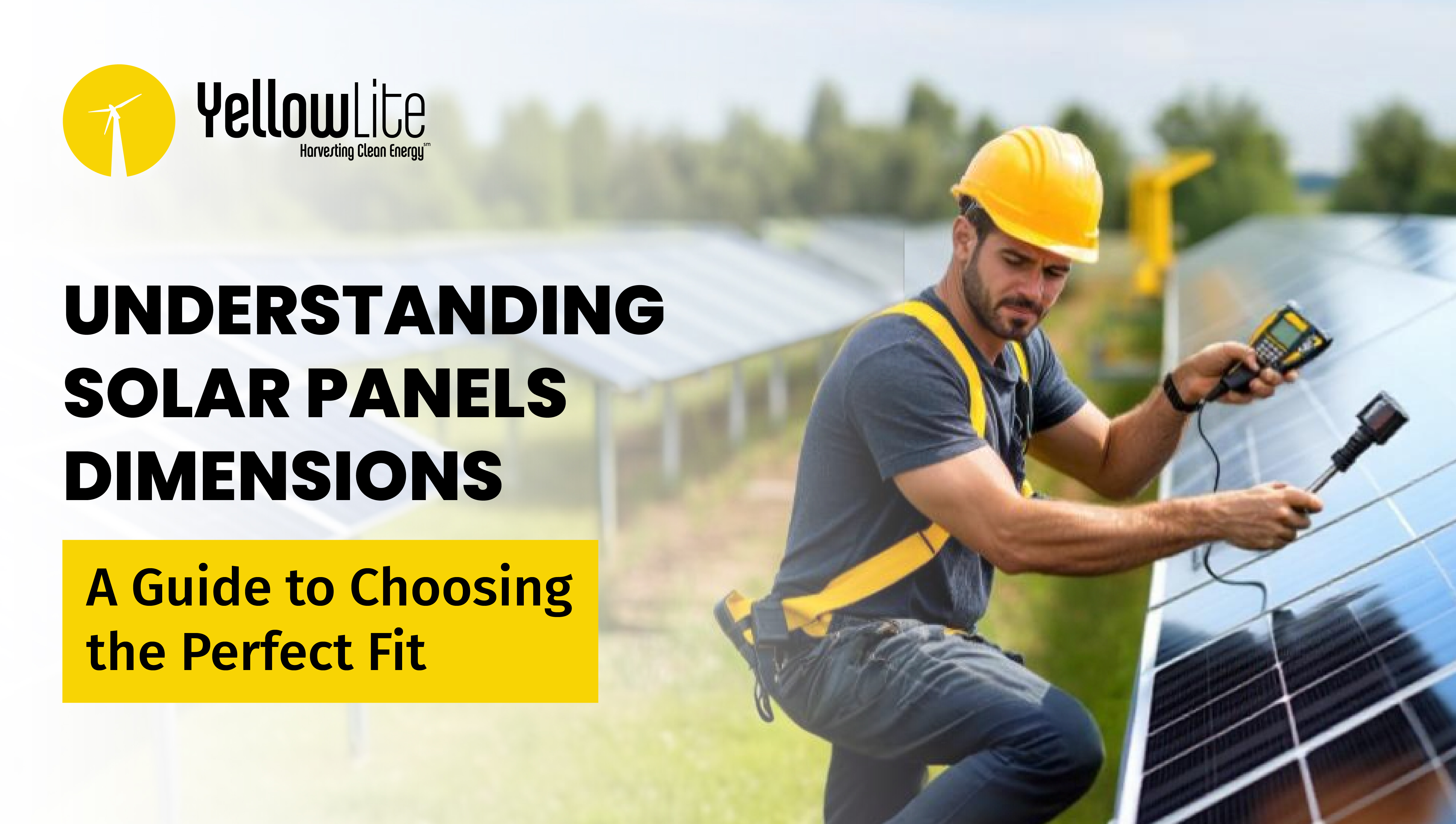If you’re in the market for solar panels, you want to know how efficiently your system will perform. You want to feel assured that you’re investing money in a high-quality system that lives up to the expectations set by your solar representative.
That means understanding any variables that could affect the performance of your solar panels.
So, let’s talk about one of the questions we’re asked most often:
How well will my panels perform on snowy and cloudy days?
In this blog, we’ll discuss how solar systems work, whether and how inclement weather affects their performance, and steps you can take to maximize your system’s efficiency.

Understanding how solar panels work
First, let’s discuss how solar panels work.
Standard solar panels are made of crystalline silicon photovoltaic (PV) cells encased in aluminum panels. Silicon is a semiconductor, meaning it has the conductive properties of metal and is an insulator, giving it the ability to conduct and block electricity.
On average, most residential solar panels have 60-72 PV cells ranging from 250-450 Watts (W) per panel. When sunlight hits the solar panels, the cells create a flow of electrons, which generates direct current (DC) electricity. An electrical device called an inverter converts the DC electricity into alternating current (AC) electricity, the usable energy that powers your home.
Wattage only tells us how much power the panels are capable of generating. We also need to understand efficiency or how much sunlight the panels turn into usable energy. After all, you’re not spending your hard-earned money on potential electricity!
The impact of cloud cover on solar panel efficiency
Like any device powered by electrical components, solar panel efficiency is affected by external factors. The main factor in how efficient solar panel panels are is how much sunlight they can access daily, also known as irradiance.
Generally speaking, you’ll want your system to have access to at least 4 hours of daily sunlight (irradiance) to function at a high level. Check these seasonal irradiance maps to find out where you stand.
Anything obstructing sunlight from getting through to solar panels decreases their efficiency, cloud cover included.
Cloud cover can significantly impact how well your solar panels operate because they decrease irradiance. A general rule of thumb is that solar panels provide about 15-20% of their usual output on cloudy days. If that sounds discouraging, keep in mind that there is a positive that comes with cloudy days, and there are solutions for this challenge.
Remember when we mentioned that obstructions impact how well solar panels function? Leaves and other debris can have an impact on your solar panels. While we recommend cleaning your solar panels every six months, a good rainstorm is often enough to dislodge any stubborn hangers-on.
Solar panels can function using indirect sunlight, so you will still get some power when the sun passes through the clouds, albeit reduced from normal levels.
But what if you’re worried that you don’t have enough sunlight for your panels to operate efficiently enough to power your home?
Worry no more! We have a solution!
How to maximize solar panel output in areas with limited irradiance
Living in a region with cloudy weather doesn't mean you have to miss out on the benefits of solar panels.
- Invest in solar storage. There are several types of batteries, with the most popular and efficient being lithium-ion. You can talk to your installer about which model makes the most sense for your home and budget. By storing excess energy, you can use it when the sun isn't shining at its brightest, ensuring that your appliances run smoothly regardless of the weather.
For solar energy storage, Yellowlite recommends the Tesla Powerwall 2 rechargeable home battery system because of its ability to integrate seamlessly into solar arrays.
Powerwall’s advanced Storm Watch automatically activates when your local weather service sends a severe weather alert, charging the battery to maximum capacity to protect you from potential grid outages. This intelligent system is capable of anticipating storms and adjusting its operations accordingly, ensuring your energy needs are met while also safeguarding the battery's longevity. What's more, you can stay informed in real-time through the dedicated app on your phone, receiving alerts and updates about your Powerwall 2's status and performance.
- Purchase premium high-efficiency solar panels. Premium solar panels manufactured with higher quality materials have higher efficiency ratings, meaning they produce more energy with the sunlight they are exposed to. Yellowlite offers Silfab solar panels that are meticulously designed to endure diverse weather scenarios while maintaining optimal performance. They are also backed by a 30-year production and 25-year manufacturer warranty.
- You can also limit the scope of your installation to cover a portion of your electricity bill or even just your heating or cooling.
You’ll still cut your energy bills significantly, but by reducing your energy requirements, reduced irradiance becomes less of an issue.
What about snow?
Many prospective solar customers wonder if solar panels will be less effective during the winter due to the reduced sunlight and cold weather. It seems logical.
While snow can cover the panels and cause a loss of energy production, solar panels are designed to be durable and withstand harsh weather conditions. Remember when we talked about indirect sunlight? The reflection of snow can also increase the output of the panels.
Additionally, in areas where snow is common, solar panels are often installed at an angle that allows the snow to slide off easily. While snowy weather may cause a temporary decrease in energy production, solar panels are still a viable option for renewable energy.
Remember to look into storage options if you expect long stretches without sun, as panels do not store sunlight independently.
Get it right with Yellowlite
Solar panels are an excellent way to supplement or replace conventional energy sources. We’ve looked into the effects of inclement weather on solar panels and how you can get the most out of your panels during these conditions. Investing in storage systems is usually the best way to maximize the energy you’re getting out of your system in areas with lower irradiance. Installing systems in regions with lower irradiance and inclement weather conditions means researching and understanding the equipment that makes the most sense for your project.
That’s why it’s best to go with a team of pro-solar experts like the ones here at Yellowlite. We have access to the highest quality solar products, installation knowledge, maintenance services, and warranties. If you’re looking for reliable solar solutions designed for all types of weather, trust Yellowlite to get it right!
Contact our team now with any weather-related questions!



